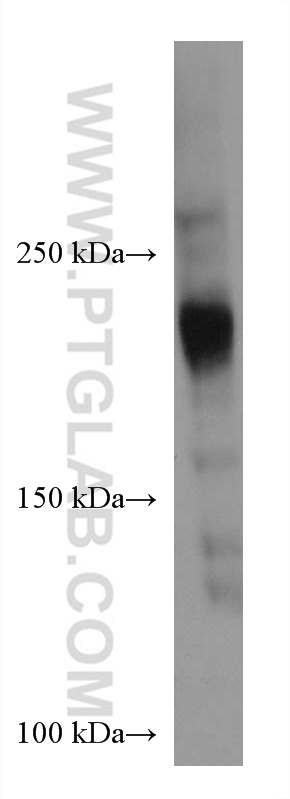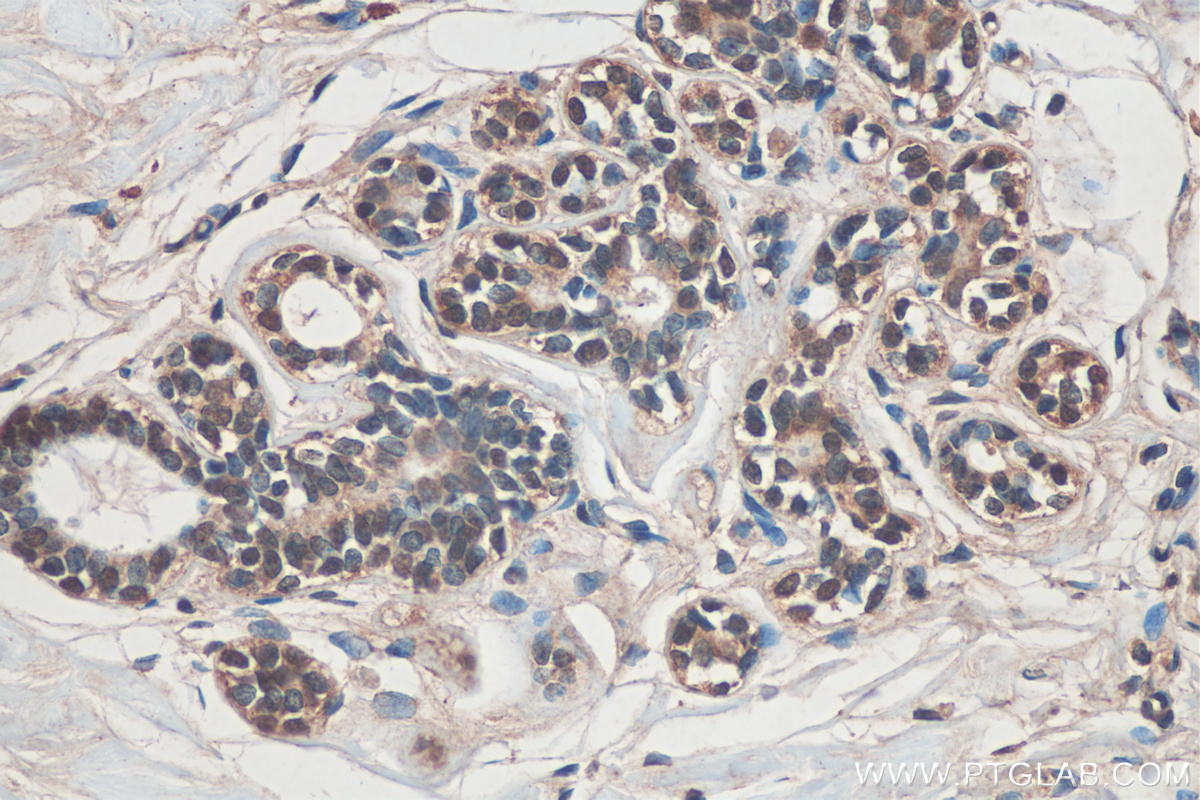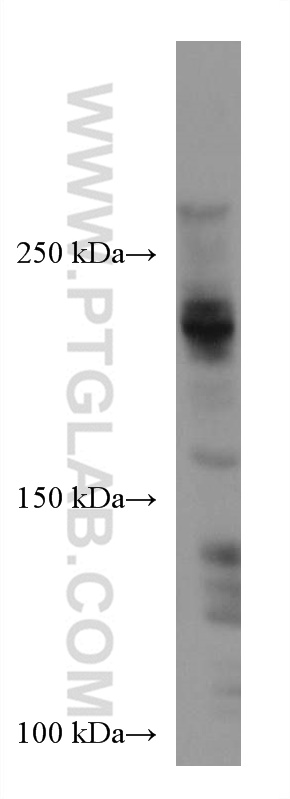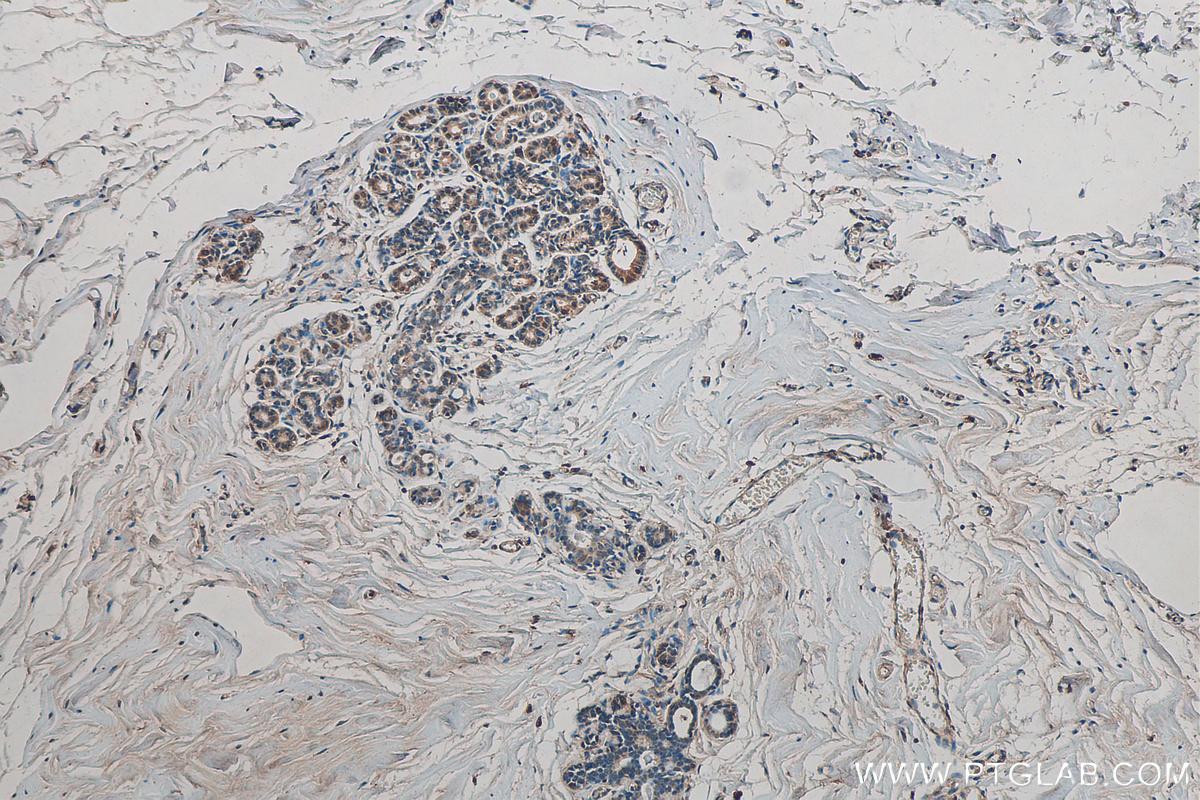验证数据展示
经过测试的应用
| Positive WB detected in | T-47D cells, MDA-MB-231 cells |
推荐稀释比
| 应用 | 推荐稀释比 |
|---|---|
| Western Blot (WB) | WB : 1:5000-1:50000 |
| It is recommended that this reagent should be titrated in each testing system to obtain optimal results. | |
| Sample-dependent, Check data in validation data gallery. | |
产品信息
67384-1-Ig targets ARID4B in WB, ELISA applications and shows reactivity with Human samples.
| 经测试应用 | WB, ELISA Application Description |
| 经测试反应性 | Human |
| 免疫原 |
CatNo: Ag21485 Product name: Recombinant human ARID4B protein Source: e coli.-derived, PET28a Tag: 6*His Domain: 406-523 aa of BC130418 Sequence: MALPEKVVNKQCKECENVKEIKVKEENETEIKEIKMEEERNIIPREEKPIEDEIERKENIKPSLGSKKNLLESIPTHSDQEKEVNIKKPEDNENLDDKDDDTTRVDESLNIKVEAEEE 种属同源性预测 |
| 宿主/亚型 | Mouse / IgG1 |
| 抗体类别 | Monoclonal |
| 产品类型 | Antibody |
| 全称 | AT rich interactive domain 4B (RBP1-like) |
| 别名 | ARID4B, BRCAA1, DKFZp313M2420, RBBP1L1, RBP1L1, SAP180 |
| 计算分子量 | 1312 aa, 148 kDa |
| GenBank蛋白编号 | BC130418 |
| 基因名称 | ARID4B |
| Gene ID (NCBI) | 51742 |
| RRID | AB_2918489 |
| 偶联类型 | Unconjugated |
| 形式 | Liquid |
| 纯化方式 | Protein G purification |
| UNIPROT ID | Q4LE39 |
| 储存缓冲液 | PBS with 0.02% sodium azide and 50% glycerol, pH 7.3. |
| 储存条件 | Store at -20°C. Aliquoting is unnecessary for -20oC storage. |
背景介绍
ARID4B, also named as BRCAA1 or SAP180, is a 1312 amino acid protein, which contains one ARID domain. ARID4B localizes in the nucleus and cytoplasm. ARID4B as a transcription repressor may function in the assembly and/or enzymatic activity of the Sin3A corepressor complex or in mediating interactions between the complex and other regulatory complexes. ARID4B is highly expressed in the testis and in breast, lung, colon, pancreatic and ovarian cancers. Expressed at low levels in the thymus, prostate and ovary.
实验方案
| Product Specific Protocols | |
|---|---|
| IHC protocol for ARID4B antibody 67384-1-Ig | Download protocol |
| WB protocol for ARID4B antibody 67384-1-Ig | Download protocol |
| Standard Protocols | |
|---|---|
| Click here to view our Standard Protocols |





